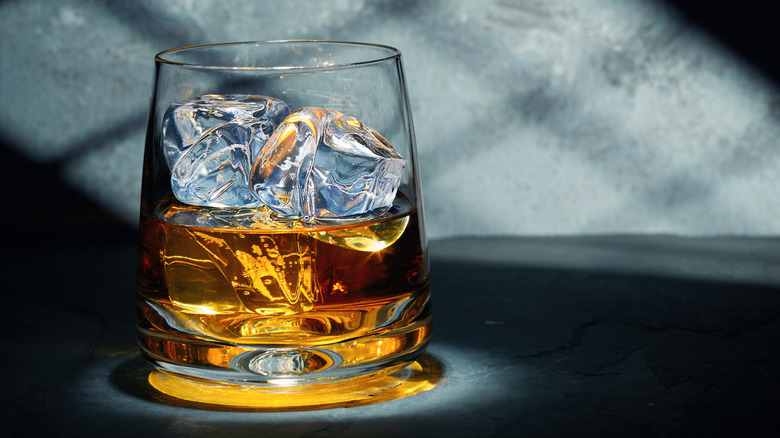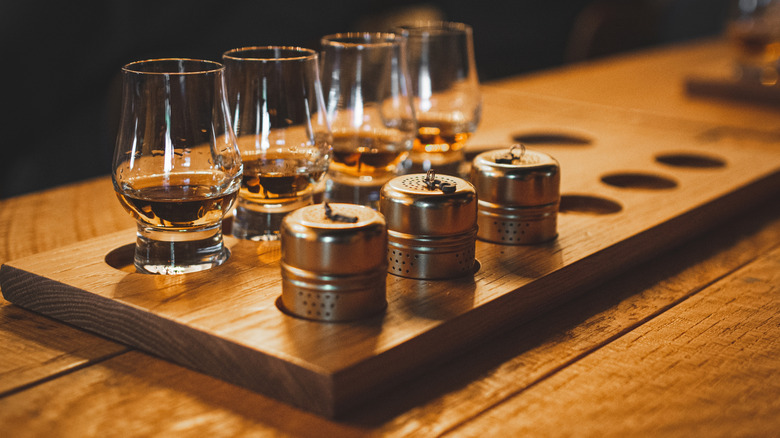Should You Chill Your Whiskey Or Glasses Before Serving?
While there are differences among bourbon, scotch, and other whiskeys, they share a common DNA: They are brown spirits, distilled from grains, and barrel-aged, sometimes for many years. As a rule, whiskey is distilled in such a way that, as great as it is in cocktails like a Paper Plane, it should also present beautifully when sipping neat. Though people regularly store their vodka or gin in the refrigerator or freezer, should you be chilling whiskey or serving it in a chilled glass? According to Adam Edwards, national brand ambassador for Heaven's Door Whiskey, "here's where I'll give you a definitive answer: NO."
Edwards filled Chowhound in on why. Though you may want to chill a martini glass in advance, he wouldn't advise it when sipping whiskey. He's been working with Heaven's Door since early 2023. The brand was founded by singer Bob Dylan and Spirits Investment Partnership in 2015, releasing its first product in 2018.
The general idea is that any quality spirit — especially whiskey — should taste fine at room temperature, or a little below. If you find you have to (rather than want to) freeze a spirit, like a low-quality vodka, in order to enjoy it, it's probably not a great product to begin with. Since well-made whiskeys are designed to be enjoyed on their own, chilling shouldn't be necessary, and you might even be putting a damper on the overall tasting experience.
Chilling whiskey mutes the flavors
Because whiskeys are distilled from a wide variety of grains, and because of the time it spends in the barrel, flavor profiles can be distinctive and very complex. When you taste a whiskey, you're analyzing its body, aroma, and flavor profile. You're identifying subtle flavor and aromatic notes like chocolate, tobacco, oak, orange, possibly brine, stewed fruits, or green apple, depending on how the spirit was made.
The problem is, chilling the whiskey itself can impact how well you can perceive those flavors, according to Adam Edwards. "Cold whiskey tends to have muted flavors," he notes. While storing distilled spirits in the freezer doesn't cause long-term damage (they won't freeze in a regular freezer), there are molecules that get tamped down and harder to detect. Served from the freezer, a spirit is also more than twice as viscous as it is at room temperature. That's fine for making your martini taste "richer," but it affects your perception of how light, or full-bodied, a whiskey is.
Edwards also recommends against chilling the glassware, whether you're tasting from a rocks glass, Glencairn, or a plain old tumbler. "Chilled glasses are great for some cocktails," he says. "But I feel that a freezing cold glass is harsh on my fingers, and detracts from the experience of enjoying the whiskey." Of course, in the end, it's your whiskey. If you like it chilled, by all means, enjoy!

